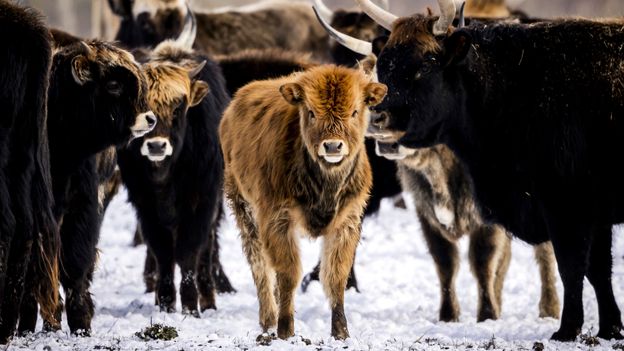The annual cap on herbivore numbers is “super unnatural”, says Svenning. A fixed population is “not how ecosystems work naturally”, he says, adding that it hinders the positive ecosystem services that grazers can provide, including natural erosion and breaking up vegetation.
“If you monitor the system you can see those [mass death] years coming, and be proactive before it happens,” Svenning argues. “You can make sure that population numbers are fluctuating, without getting into any kind of real welfare problems.”
From an evolutionary perspective, Svenning says that it is also important to “not remove the natural forces that impact evolution, otherwise, eventually the [herbivores] will degrade to something that can only be a domestic animal”. If wild horses had evolved with “plenty of food, without any stress or predation, they wouldn’t have had such long legs, they would have been some other kind of slower, plumper animal,” he says.
“Scientifically I think it’s a missed opportunity to not allow things to keep going with as little interference as possible,” adds Svenning. “We learn from experiments.”
A tamer view
But Schepers argues that pragmatism is also important when it comes to rewilding. “There are limitations such as the physical landscape, the infrastructure and climate, but there is also the social element,” he says. “You have to find a way for people to accept the idea.”

